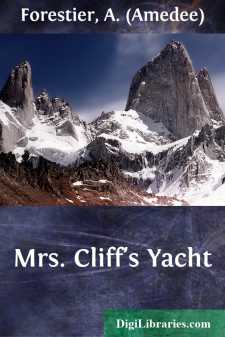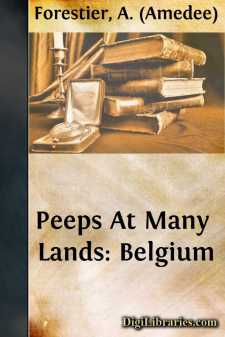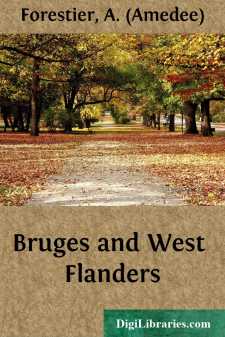Categories
- Antiques & Collectibles 13
- Architecture 36
- Art 48
- Bibles 22
- Biography & Autobiography 813
- Body, Mind & Spirit 142
- Business & Economics 28
- Children's Books 17
- Children's Fiction 14
- Computers 4
- Cooking 94
- Crafts & Hobbies 4
- Drama 346
- Education 46
- Family & Relationships 57
- Fiction 11829
- Games 19
- Gardening 17
- Health & Fitness 34
- History 1377
- House & Home 1
- Humor 147
- Juvenile Fiction 1873
- Juvenile Nonfiction 202
- Language Arts & Disciplines 88
- Law 16
- Literary Collections 686
- Literary Criticism 179
- Mathematics 13
- Medical 41
- Music 40
- Nature 179
- Non-Classifiable 1768
- Performing Arts 7
- Periodicals 1453
- Philosophy 64
- Photography 2
- Poetry 896
- Political Science 203
- Psychology 42
- Reference 154
- Religion 513
- Science 126
- Self-Help 84
- Social Science 81
- Sports & Recreation 34
- Study Aids 3
- Technology & Engineering 59
- Transportation 23
- Travel 463
- True Crime 29
A. (Amedee) Forestier
Amédée Forestier (1854–1930) was a French-English artist and illustrator known for his detailed historical and archaeological reconstructions. He worked primarily as an illustrator for magazines like "The Illustrated London News" and contributed artwork to historical novels and texts. Forestier's illustrations often focused on prehistoric and medieval scenes, offering visually rich interpretations of archaeological findings. He also created illustrations for books such as "The Life of King Edward VII" and was highly regarded for bringing history to life through his art.
Author's Books:
Sort by:
ALONE WITH HER WEALTH On a beautiful September afternoon in a handsome room of one of the grand, up-town hotels in New York sat Mrs. Cliff, widow and millionaire. Widow of a village merchant, mistress of an unpretending house in the little town of Plainton, Maine, and, by strange vicissitudes of fortune, the possessor of great wealth, she was on her way from Paris to the scene of that quiet domestic...
more...
CHAPTER I THE SANDS OPPOSITE ENGLAND If you leave the mouth of the Thames, or the white chalk cliffs at Dover, and sail over the water just where the English Channel meets the North Sea, you will in about three or four hours see before you a long expanse of yellow sand, and rising behind it a low ridge of sandhills, which look in the distance like a range of baby mountains. These sandhills are called...
more...
CHAPTER I THE MARKET-PLACE AND BELFRY—EARLY HISTORY OF BRUGES Every visitor to 'the quaint old Flemish city' goes first to the Market-Place. On Saturday mornings the wide space beneath the mighty Belfry is full of stalls, with white canvas awnings, and heaped up with a curious assortment of goods. Clothing of every description, sabots and leathern shoes and boots, huge earthenware jars,...
more...




